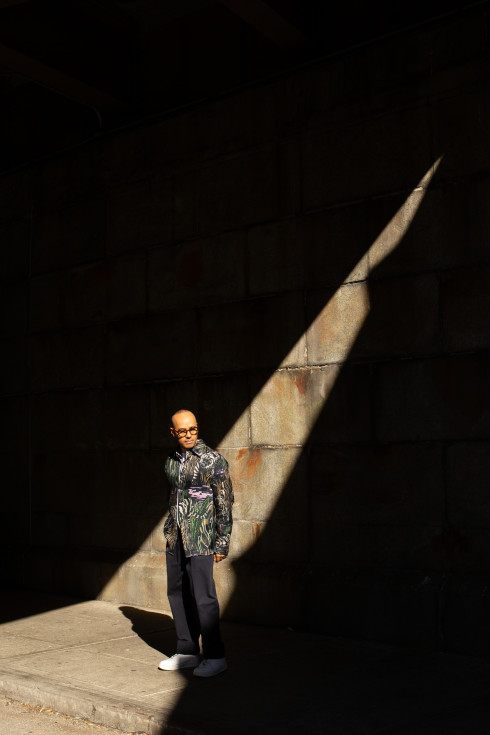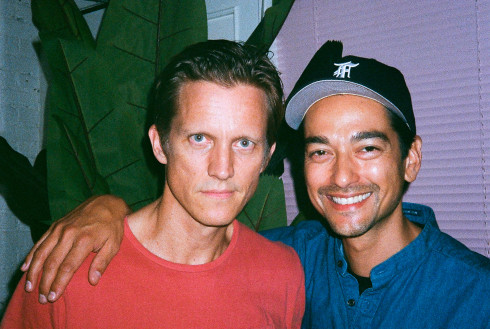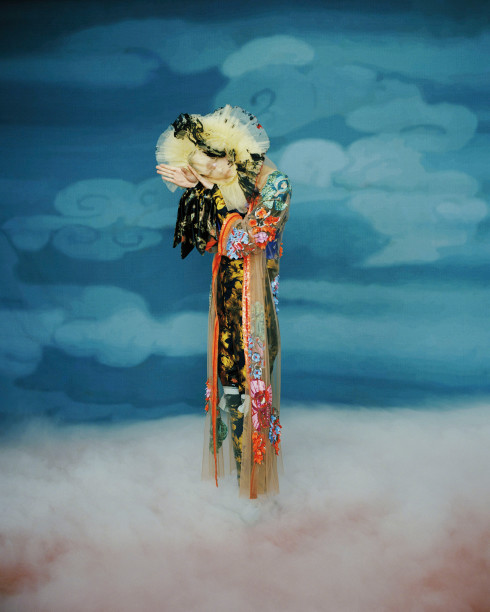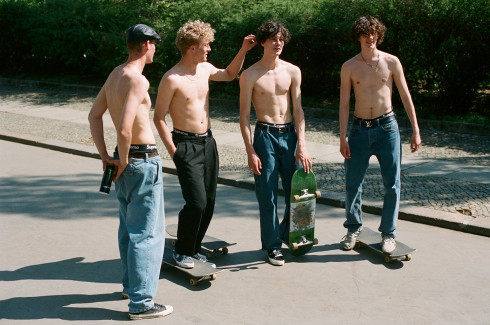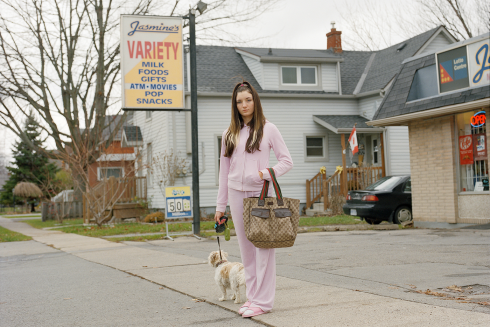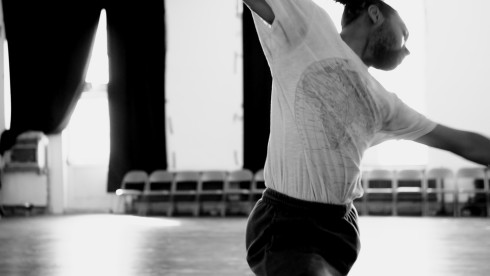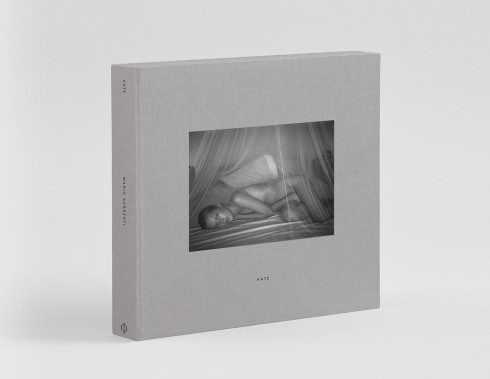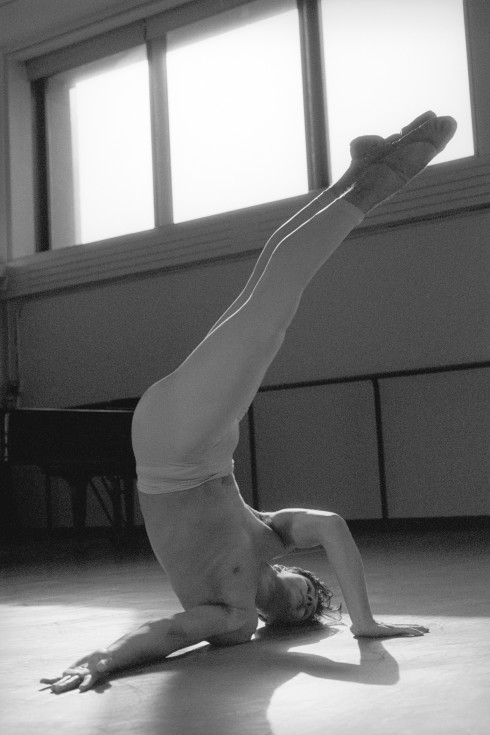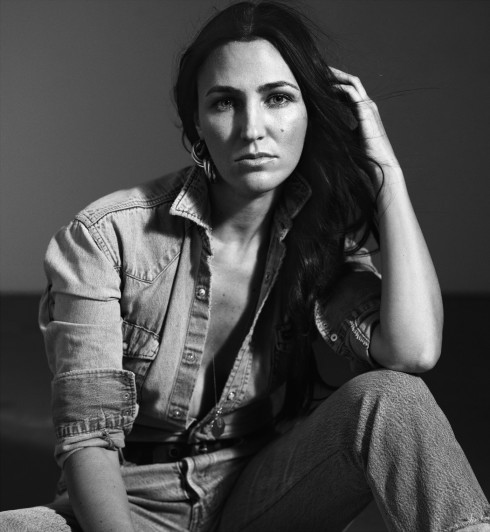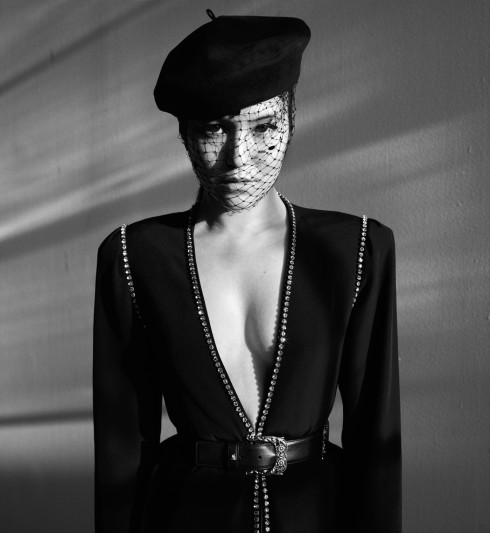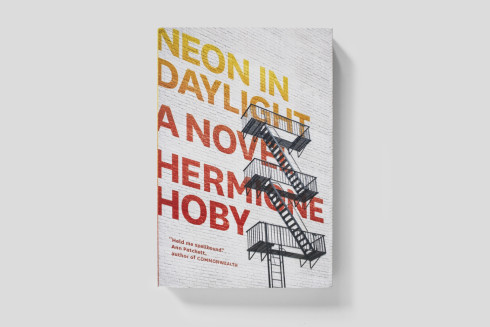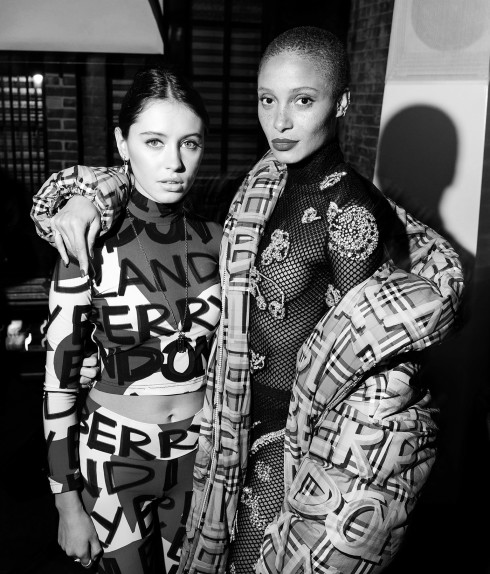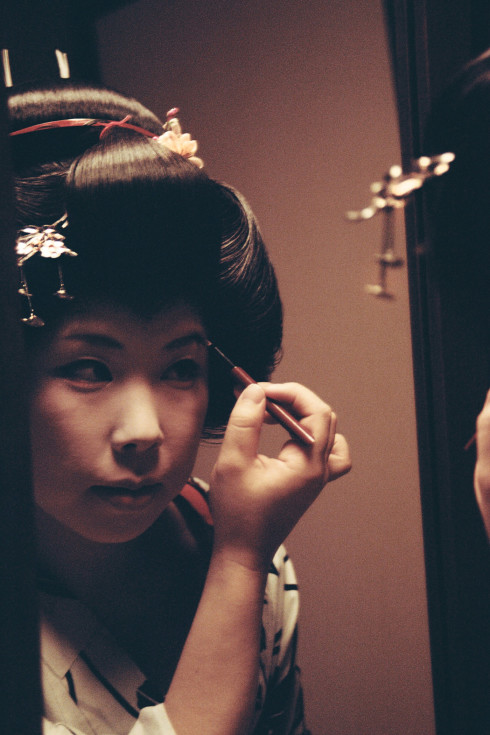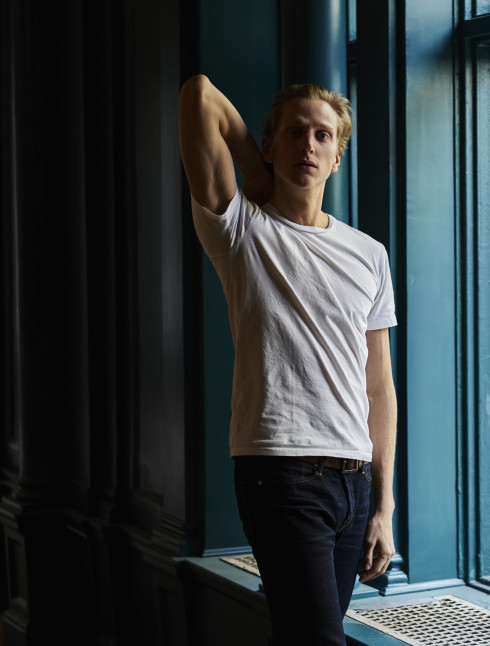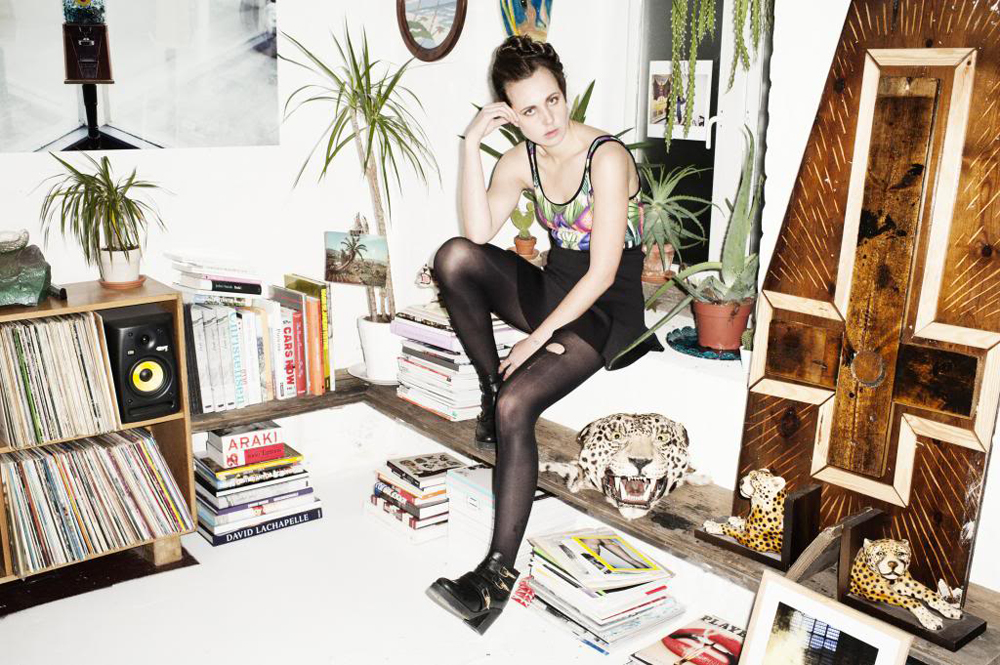
MØ
Ask the Danish singer Karen Marie Ørsted—better known as Mø—why she has devoted her life to music and her answer couldn’t be clearer: “I wanted to be like the Spice Girls!” Many girls who grew up in the mid-to-late Nineties harbor whimsical memories of dressing up in cropped tops and lip-synching enthusiastically to “Wannabe,” hairbrush firmly in hand. But while few can claim that their fandom launched them on a career in music, Mø certainly can. Ever since first listening to the Spice Girls’ début album Spice, the 25-year-old artist has been determined to bring girl power to a new generation.
If the past two years are anything to go by, she’s succeeding. Mø, who grew up in the suburbs of Odense, Denmark’s third-largest city, is the latest in an impressive stream of dynamic female musicians emerging from the cool countries of the North. Since her debut EP, Bikini Daze, grabbed the attention of music critics and bloggers in October 2012, she has garnered numerous plaudits and respectable comparisons to songstresses like Grimes, Santigold, and Lana Del Rey. Then came “Pilgrim,” the instantly-catchy, eerily emotional song that truly kick-started her career: “That song embraces all the things I like about music at the moment,” Mø says. “The production is minimal and fresh and combines organic elements with programmed sounds. Indie pop, street vibes, soul—melancholy and happiness at the same time.”
Combining doleful lyrics with buoyant, infectious melodies has proved to be a successful recipe for Scandinavian pop, but Mø’s music is far from formulaic. Her territory lies in the universe of the young—in that uneasy, yet blissfully naïve, intermediate stage of life verging on the cusp of adulthood, a time when, according to Mø’s lyrics, “blood is on fire” and “it’s harder to resist.” Her raw, soulful voice belts out honest, heartfelt lyrics over artfully produced, highly-danceable electronica pop beats with nods towards hip hop and punk. Sizzling guitar play and a deep-purring bass are signature sounds in Mø’s music, often accompanied by quirky elements such as heavy handclaps and exuberant horns. This refreshing mixture provides the soundtrack to the remembered dog days of youth and those sultry summer nights that never seemed to end.
Inevitably, we all outgrow our adolescence, but Mø seems determined to stay firmly rooted in hers. That doesn’t imply that she’s embarrassingly immature; rather, her infectiously optimistic attitude resembles that of any aspirational teenager who thinks that anything is possible, and that the world is there to be grabbed with both hands.
But there’s also an underlying darkness permeating her songs—a darkness that expresses the alienated restlessness of modern youth who inhabit a constantly logged-on world that engenders both isolation and interconnection. “Young people today have to find their own way to navigate through life and society,” says Mø. “It’s now the media and the social media who preach what’s right and wrong, and we all strive to live up to these insane standards. We live in a ‘me, me, me’ generation and we glorify eternal youth, wealth and beauty. It isn’t healthy.”
Youthful disquiet lies behind the artist’s challenging adopted name—a name which she’s the first to admit “can be a pain in the ass for non-Scandinavians [to pronounce].” In the old Nordic language mø (pronounced “moo”) means maiden, virgin, or young, unspoiled person. However, teenage years are synonymous with breaking away from this state of innocence through constantly testing boundaries. “It’s a very intense time of your life where everything gets turned upside down and you experience all these new things and feelings. Your body changes, your thoughts change, your life changes. You get thrown into the eye of the hurricane as a pure and unspoiled child and emerge someday as an adult,” she explains. “That’s why I named myself Mø. Oh, the irony!”
Irony indeed. But it’s this tongue-in-cheek attitude that constitutes the DNA of the artist Mø. Her penchant for wearing sportswear such as cool cropped tops, decorated bomber jackets, grungy distressed denim, leopard print leotards, and shorter-than-short miniskirts signals that she is anything but a dainty maiden.
Mø grew up in a household where action-packed vacations, such as hiking in the mountains of Norway, canoeing on Swedish lakes, and sightseeing in the capitals of culture were prioritized over new cars and big TVs. “I actually liked growing up in the solitude of the suburbs,” she admits. “I had some good mates and I enjoyed the silence—it made me wonder and dream. I remember walking around my neighborhood in the afternoons, humming and daydreaming about becoming a rock star. Those are good memories.”
Although a true pop girl at heart, when Mø turned fourteen and entered her “ravaging teens” she began hanging out with “the cool leather jackets” in the punk milieu. At eighteen, she even formed a punk band, Mor, with a friend. “Punk taught me something new about music—the beauty of imperfection. The flaws, the darkness, the aggression, the vulnerability, the shivers, the humanity. Suddenly you could really see and feel the souls behind the music—feel their pain and their joy, their dark irony and their political messages under the surface,” she describes. “I loved that! Before that I only had a passion for polished pop icons who were manufactured by big money machines. This was totally different and I learned a lot from that.”
Today, Mø has been signed by the heavyweight music label Sony Music Entertainment, but she doesn’t seem concerned by the risk of falling victim to a “big money machine.” Quite the reverse, in fact. All the lead vocals for her début album No Mythologies to Follow, released in March and produced by long-term collaborator Ronni Vindahl, were recorded in Mø’s childhood home, in a DIY studio where her mother’s old, hippie blankets served as walls. “I intend to keep the vibe of my days in the punk milieu in everything I do in my career and private life,” insists Mø.
“I don’t like it when you can’t feel the human behind the music or the visual style of an artist. You want to believe that this is a real person,” she continues. “It’s the flaws that make a person beautiful. Perfection is unnatural, but we all strive so hard to be perfect. We’re terrified of failure so we hide our flaws and insecurities. I wish we wouldn’t, but it’s hard. I’m struggling with it myself, but I try to remind myself of these things every day—every time I write a line, record a melody, enter the stage or do an interview.” Mø’s struggle with insecurity is extremely well-camouflaged, however: by being so aware and open, so intensely in the moment, her music and performances have an edgy quality that is enticingly unrestrained.
Mø performs Friday at the Music Hall of Williamsburg, 66 North 6th Street, Brooklyn. No Mythologies to Follow is out now from RCA. For more information, please visit MoMoYouth.com. Photography by Thomas Skou.
Sunniva McLees is a fashion and culture writer whose work has appeared in Acne Paper, among others. Based in London, she received an MA in fashion journalism from Central Saint Martins.
